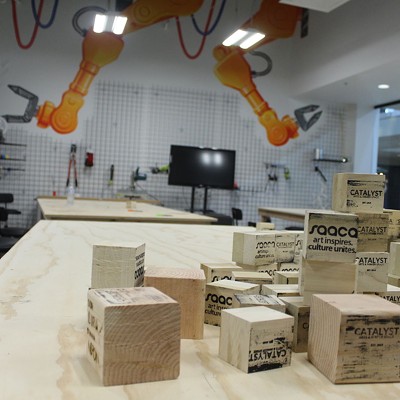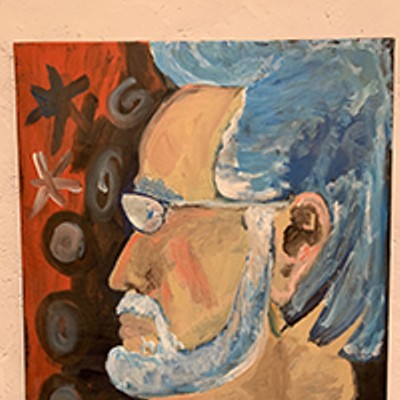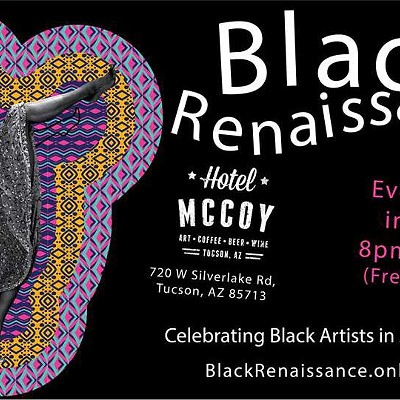At a series of planning meetings held earlier this year, city officials assured artists they wanted to work with them (see "Blank Walls," June 5). But they were also informed if they leased space in a warehouse owned by Arizona Department of Transportation, their rents would be going up significantly once the city obtained control of the properties.
The dual message went over poorly, with many artists reacting angrily and some threatening to just leave Tucson. Rameen Ahmed, who coordinated the meetings, concluded: "This parallel effort by the city of Tucson to renegotiate and increase rental rates seriously jeopardized" the entire planning process.
The conflicting signals were further exasperated when Mayor Bob Walkup gave a vague and rambling answer about his position on possible rent increases in the district.
The situation got even more confusing over the summer when the city failed to finish a district master plan by a Sept. 30 deadline. The report is now not due until next year.
John Updike, of the city's Rio Nuevo office, admits that during the earlier meetings, he and other local officials learned the artists had deep fears about the future of the district and tremendous concern about rental rates. City staff decided to take more time with the planning process and work through the controversial issues while trying to build trust, according to Updike.
As a result, Updike says, current rents will be frozen at least until May. The transfer of management control of the ADOT-owned warehouses has taken much longer than anyone expected, but it could be finalized by sometime in November.
Although the warehouse district is in need of substantial repairs and improvements, the artists who occupy the buildings want to be part of the current downtown revitalization movement and have a vision of developing an art enclave in the area, according to Ahmed. She suspects city officials initially wanted to see the district turned into art galleries and chic shops that would generate tax dollars.
Artist and warehouse district property manager David Aguirre says Ahmed is probably right. But the artists in the warehouses, some of whom have been renting from ADOT for more than 15 years, would prefer to see an "art production zone," not a street of shops and galleries, according to Aquirre, who suggests such outlets would be better located on Fourth Avenue or other places downtown. The city, Aguirre thinks, is slowly coming to the same conclusion.
To push their point, this summer several warehouse tenants re-established the long-dormant Tucson Arts Coalition. In a mission statement, the group says it "has made a choice to resist the basic and economic process of artist displacement as a result of artist pioneering. Making the warehouse district un-sustainable will not work."
"The city and artist representatives must maintain a dialogue based on mutual trust and cooperation," the statement adds.
To try to accomplish that, the architectural firm of Poster Frost is developing a master plan for the district with emphasis on Toole Avenue. According to architect Corky Poster, this $35,000 effort will look at "pretty critical issues" about the area's future based on the city's eventual management of the 20 or so ADOT-owned warehouses. It will also consider what has been done in successful arts districts around the country.
Poster, who anticipates the plan being completed by mid-March, says that he wants to "get everything out on the table" about the current rents being paid by the artists, along with the cost of needed warehouse rehabilitation work. "The economics of this aren't clear to anybody," he says.
Even though the master planning effort has just begun, Anne-Marie Russell, executive director of the Museum of Contemporary Art on Toole Avenue, is very hopeful.
"Democracy is slow and hard, but everyone is positive that the economic and cultural development of downtown is going to happen," she says.
Russell blames past problems on miscommunication and what she terms a lack of transparency on City Hall's part, but believes those issues can now be overcome.
"The arts are money-making propositions, and Tucson can figure that out," she says.












